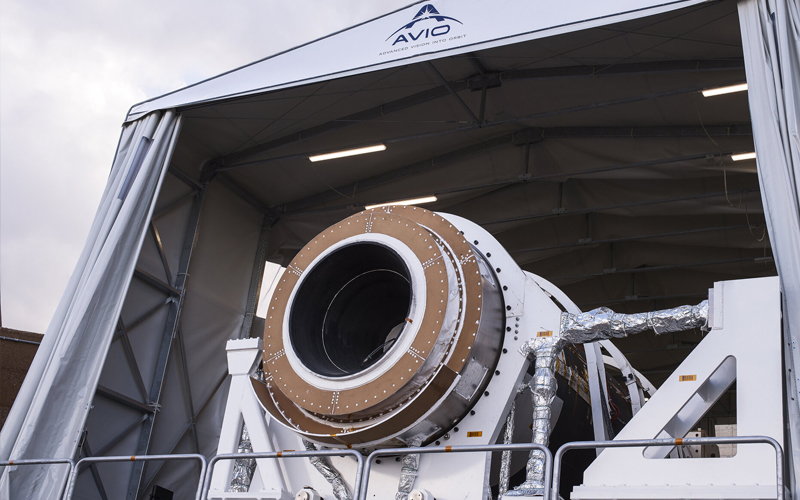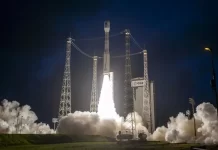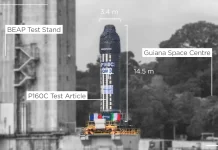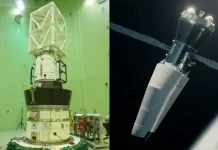
Italian rocket builder Avio has announced that it has shipped the first of its redesigned Vega C Zefiro 40 second stage to its testing facility in Sardinia ahead of its first static fire test.
In late 2022, the second flight of the Vega C rocket ended in failure, resulting in the loss of two Airbus Pléiades Neo Earth observation satellites. An investigation identified the material utilized to manufacture the Z40 throat insert as the cause of the failure. However, following a failed recertification test in June 2023, investigators called for the Z40’s entire nozzle to be redesigned.
On 8 May, Avio published the highlights of first quarter financial results, which included an update on the Vega C rocket’s path back to flight. The report states that during the first quarter of 2024, the Z40 Qualification Motor 3 (QM3) was assembled, with the redesigned nozzle being integrated with the stage’s solid rocket motor. The completed stage was then shipped to the Avio testing facility in Sardinia. A static fire test of the stage is expected to be conducted between late May and early June.
Once QM3 has been successfully tested, Avio will work towards a second static fire test in the third quarter of 2024, which will complete the recertification of the Z40 stage. If all goes well, Avio projects the rocket’s return to flight occurring towards the end of this year.
While Avio works towards the rocket’s return to flight, it also has an eye on fulfilling an expanding launch manifest. According to the company’s Q1 financials, Avio reduced its net cash position by €66.6 million from the last quarter of 2024 to just €9.6 million. One of the primary reasons given by the company for the spending is the “procurement of certain strategic long lead items of Vega C.”
Arianespace divorce is yet to be finalized
The Avio Q1 financial highlights report also commented on ESA signing a contract with Arianespace to launch its SMILE mission aboard a Vega C rocket.
In November 2023, ESA member states agreed to allow Avio to remove its Vega rockets from Arianespace’s management, enabling the company to market and manage launches itself. However, with Arianespace still signing contracts for flights aboard Vega C, it’s clear that the split has yet to occur.
According to Avio, the SMILE mission will be managed by Arianespace “up to the moment this mandate is transferred to Avio under the implementation of the Resolution adopted by ESA in Seville on 6 and 7 November 2023.” However, the report does not give any insight into how far along the process is or when it is likely to be completed. With SMILE expected to be launched in late 2025, time is not on Avio’s side.




